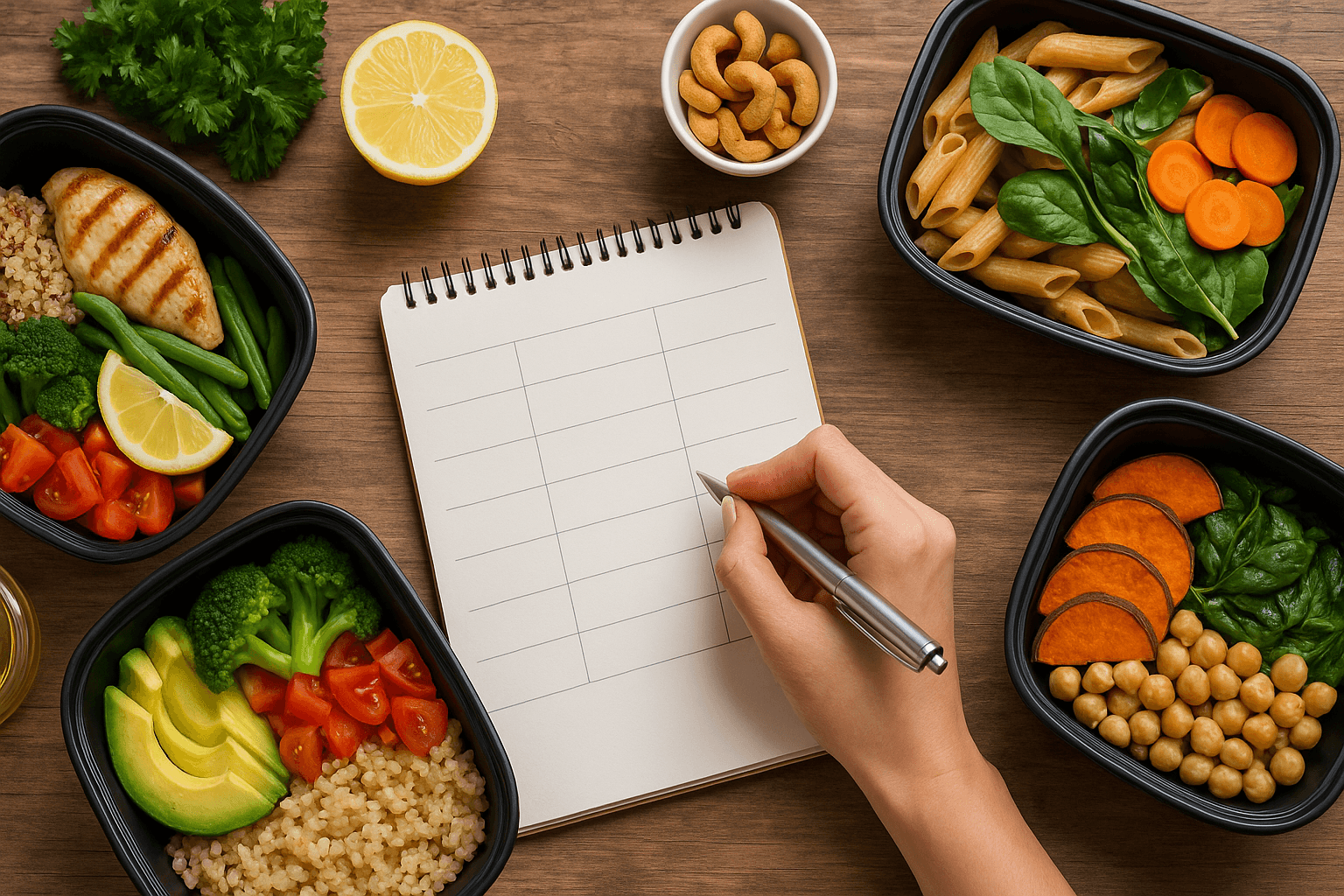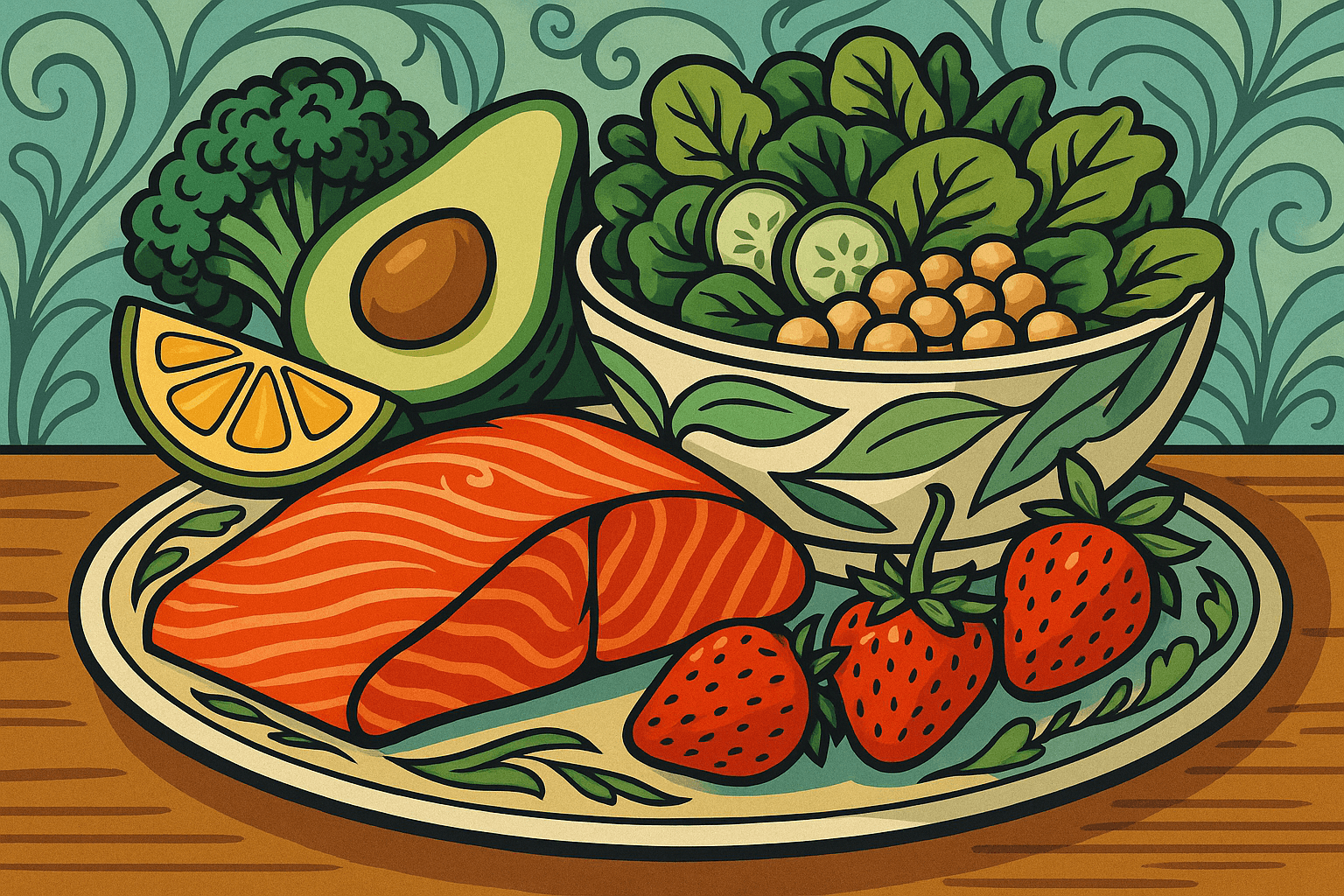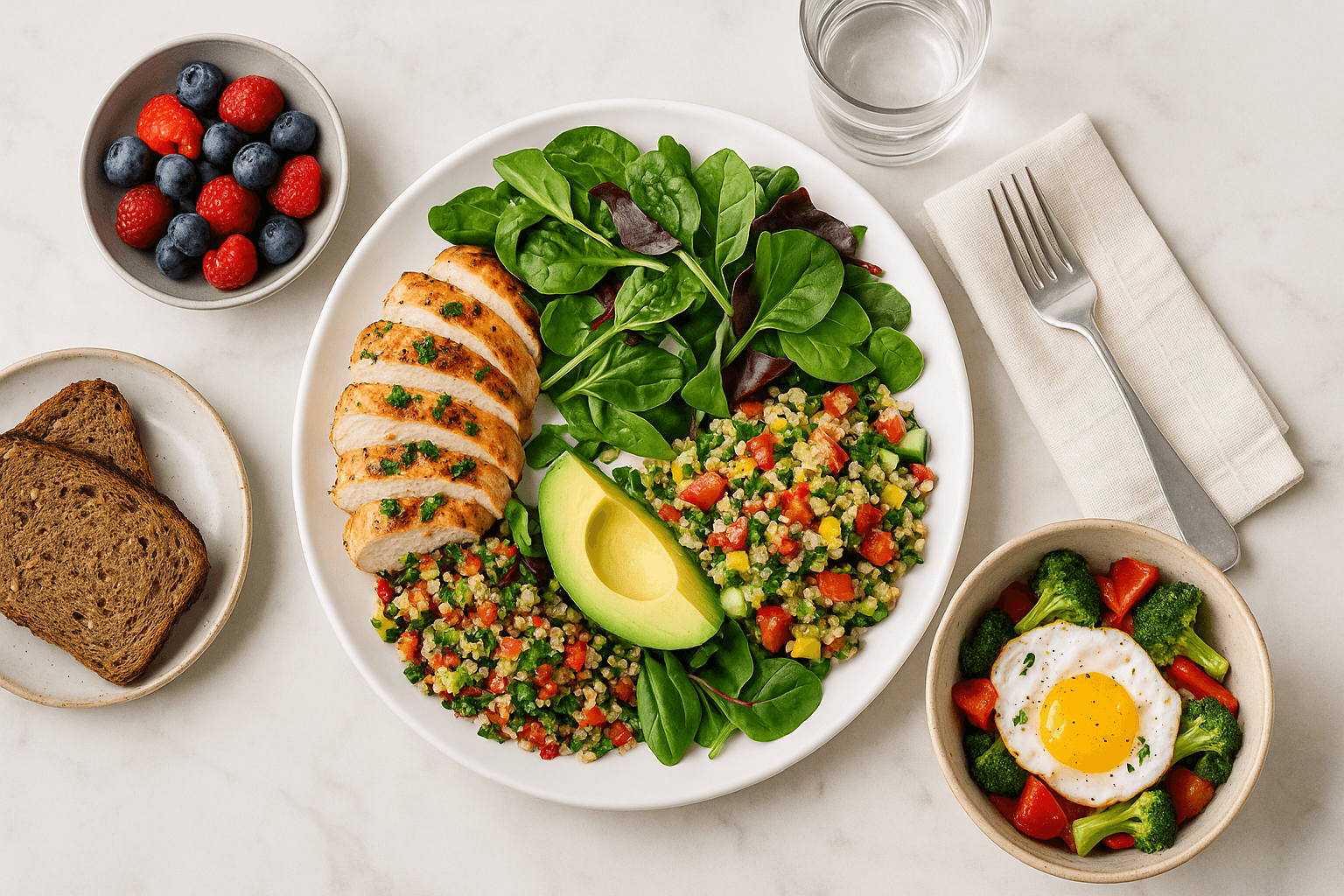MEAL-PREPPING: YOUR KEY TO SIMPLER, HEALTHIER EATING AND LASTING RESULTS
Published on July 17, 2025

Meal-prepping is such an important thing that not only makes eating food that much simpler (which also makes those healthy lifestyle goals seem far more attainable), but also helps to support any of those health goals, and eliminates the stress around eating. Whether you are trying to lose weight, increase energy, or manage chronic conditions, having a personalized meal plan that meets your taste preferences and lifestyle can make all the difference in the world when it comes to sticking with the plan and getting results. It turns eating from reactive behavior into a proactive, mindful practice that can effect lasting change for self-care.
Why Meal Planning Matters
Without a thoughtful and well-planned approach, we can easily become reliant on unhealthy convenience options, miss a meal, or overeat when hunger strikes unexpectedly. Planning your meals provides an opportunity for you to create intentional healthy food choices that are both nourishing to your body and keep your energy stable through the day! It can discipline portion size and limit calorie intake and increase the variety and density of nutrient-rich foods eaten, which leads to better health.
Planning what you’re going to eat in advance also cuts down on food waste, as you only buy what you need and make the most of leftovers. It can save you money by stopping impulse purchases and eating out too often. What’s more, meal planning reduces decision fatigue — the mental fatigue that results from having to make decisions about what to eat over and over again — which frees your cognitive resources to do other important life things, and increases the likelihood that you maintain your dietary goals over time.
Elements of a Well-Balanced Diet
Macronutrient Balance
Optimal meal planning means choosing a diet with the right amounts of fat, protein, and carbs that supports your metabolism without overdoing it. Whole grains, legumes and vegetables are rich in complex carbohydrates, and they are best for long lasting energy and fiber for healthy digestion and blood sugar balance. Lean proteins — like fish, poultry, legumes and dairy — are vital for repairing tissues, immune function and preserving muscle mass. Healthy fats derived from nuts, seeds, avocados and olive oil help brain health, hormone production and cardiovascular wellbeing.
Nutrient Density and Variety
By consuming a wide assortment of colorful fruits, vegetables, grains, and meats, your body will have a rich array of vitamins, minerals, antioxidants, and phytochemicals at its disposal. This variability is necessary for an optimal immune response, to lower oxidative stress and to keep the gut microbiome healthy. Switching things up keeps diet boredom and unfortunately even potential nutrient imbalances at bay, which can lead to a better level of dietary compliance.
Flexibility and Adaptability
A sustainable diet plan allows room for social events, culture, seasonal foods, and personal desires. An absence of strict rules takes the stress out of eating and decreases the likelihood of bingeing or throwing in the towel on your diet. And flexibility means you can experiment and have fun, instead of making healthy eating a miserable, life-long chore.
Preparation and Convenience
Optimize your meal prep: Tools to streamline your meal prep, make sure you’re utilizing resources like batch cooking, pre-delegated meals and snacks, and kitchen gadgets such as slow cookers or pressure cookers to save you time during those hectic weeks. When you have healthy, convenient meals on hand, you eat from them instead of relying on processed foods and less nutrient-dense foods, which can be super helpful for staying on track even on really busy days!
How to Make Your Custom Meal Plan
Set Clear, Realistic Goals: Determine what you want to accomplish — be it weight loss, muscle gain, better blood sugar control, increased energy — and establish measurable goals.
Determine Cuisine Preferences and Restrictions: Consider your cultural background, dietary requirements, allergies or any ethical or religious restrictions in order to ensure the plan is palatable and suitable.
Select a Mix of Meals and Snacks: It's important to make meals that include protein, complex carbs or fiber and healthy fats (and, of course, a variety of veggies).
Set Meal and Snack Times: Choose times to eat that work for you and help maintain even energy and a healthy metabolism.
Make Lists More Organized: Categorize goods for reducing time, and prevents forgetting an item when shopping.
Do Some Cooking in Advance: Set aside time to prepare bulk servings, so you don't have to cook that much daily and it keeps the healthy choices at the ready.
Monitor and Adjust: Monitor how you’re feeling, your level of hunger, and progress towards objectives, adjusting the plan as required for best results.
Sample Day of Balanced Meals
Breakfast: Warm bowl of oatmeal with fresh berries, almond butter and a sprinkle of chia seed to give you the complex carbohydrates, antioxidants, fiber, and heart healthy fats to start your day with some energy.
Snack: A snack of Greek yogurt and chopped walnuts topped with a little honey packs a powerful dose of protein, probiotics, omega 3 fatty acids, and sweet satisfaction.
Lunch: Quinoa salad with grilled chicken, mixed greens, cherry tomatoes and olive-oil-lemon dressing: This salad pairs complete protein (grilled chicken), fiber (quinoa) and heart-healthy fats.
Snack: Crunchy carrot and cucumber sticks with homemade hummus provide fiber, vitamins and plant-based protein, helping you stay full and fend off hunger.
Dinner: Baked cod with steamed asparagus and creamy sweet potato mash: This dinner has lean protein, vitamins, minerals, and complex carbs to help you recover and stay full.
How to Stay Constant and Motivated
Leverage Tracking Tools: Journals or mobile applications are useful for raising awareness around eating patterns, nutrient consumption and mood.
Cooking in Batches and Freezing: By preparing meals that can be frozen ahead, you will have healthy choices ready for when you’re pressed for time or feeling less than motivated.
Drink Up: Regular water consumption aids in metabolism and helps cut down on false hunger signals.
Create a Support System: Enlist the support of family, friends and wellness groups to help keep you accountable and share each other’s motivation.
Celebrate Achievements: Acknowledge and give yourself a reward when you achieve a milestone.
Common Obstacles to Meal Planning And How to Overcome Them
Lack of Time: Look for fast and easy recipes and meal prep ideas and easy cooking tools to save your time.
Poor Culinary Skills: Begin with basic, trusted recipes and gradually become confident with the help from tutorials and cooking classes.
Manage your Budget: Purchase seasonal, local produce and cheap protein sources like eggs and legumes or buy staples in bulk.
Social Dynamics: For social events, you might plan ahead by choosing meals with options for flexibility, or you might ask that your food be prepared to meet your specific diet needs when dining out.
Meal Timing and Frequency
Studies show that meal timing can affect metabolism and appetite. Others do best with 3 meals per day (no snacking), or smaller, more frequent meals, and others do best with an intermittent fasting meal plan. Listening to hunger and fullness cues with regular eating times is good for metabolism and a more sustainable approach.
The Psychological and Emotional Benefits of Meal Planning
Planning meals helps eliminate mealtime stress and decision fatigue, and can lead to a healthier relationship with food. Mindful eating — paying attention to hunger cues and the experience of food — leads to greater satisfaction and can curb emotional eating-related overeating.
Environmental and Ethical Considerations
Choosing to eat seasonal, local and sustainably raised food is a win-win situation: it is good for the planet, your health and your community. By grocery shopping and planning meals to reduce food waste, you can help fight climate change.
Leveraging Technology for Success
Apps such as MyFitnessPal, Yummly and Mealime let you create personalized recipes and grocery lists and help you track your progress, streamlining planning and compliance.
Long-Term Strategies for Success
Build in flexibility so your plan can adjust itself as situations and choices change. Discover new foods and ways of cooking to keep meals exciting. Find support groups and dietitians to help support you — They say never to go it alone. Continuously re-evaluate your goals, and celebrate what you've achieved to keep yourself motivated.
Final Thoughts
Meal planning is such a radical, empowering act that allows you to be in control of your nutrition and health. With an emphasis on balance, variety, preparation and flexibility, you will create healthy habits that nourish your body and mind, integrate easily into your lifestyle, establish a foundation for lifelong vitality, and implement through simple behavior weekly challenges.








